Related Information
History
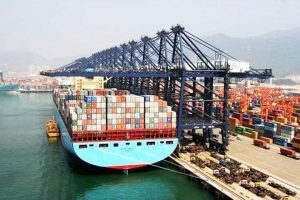
Formal collaboration in the Shipping and Maritime sector among the States in Eastern and Southern Africa was initiated by the founding fathers of Kenya, Tanzania, Uganda, and Zambia in 1967 on an ad hoc basis, and later formalized with the establishment of a Secretariat in 1974 and a Treaty in 1987. This came after regional economies faced adverse conditions in shipping and international trade that were beyond their individual control. The complexities and international nature of these issues necessitated collective action.
The primary mandate of the organization was to advise governments on addressing soaring freight rates and other adverse conditions in international trade that negatively impacted shipping and maritime trade, while also undertaking several functions on their behalf.
The Organization operated primarily as a government-to-government body until 2006 when it transformed to accommodate the changing dynamics in shipping and international trade. This evolution recognized the increasing role of the private sector in shipping and freight logistics, as well as the need to promote trade across inland water bodies.
The founding members of the Organization who for a long time operated as a four-member organization but are currently six, have taken note of the increasing universality of shipping and maritime challenges affecting regional states. They acknowledge that it is neither in their own interests nor the interests of the region and Africa at large for the organization to continue being restricted in terms of membership and operations, especially given that the reasons for its formation are the very challenges faced by and aspirations pursued by the rest of the regional states.
Ministers responsible for shipping and maritime affairs of the states using the Indian Ocean and its adjoining bodies as their maritime passage for international trade met in March 2022 in Entebbe, Uganda, and in March 2023 in Livingstone, Zambia, to reiterate the importance of collaboration in the shipping and maritime sector and to commit to working together to address their shipping and maritime agenda as a region.
Concurring with the Organization’s founding members and united by their shared interests, challenges, and aspirations but decried the lack of sufficient collaboration and unity of purpose in this area, expressing concern over the negative effects of unilateral and disjointed efforts in this complex, capital-intensive, high-expenditure, and highly specialized industry. The regional Ministers acknowledged the need to have a unified regional Maritime body that can address these common issues. Recognizing the Intergovernmental Standing Committee on Shipping (ISCOS) as the pioneering regional maritime organization, though with a limited mandate, the regional ministers agreed to rebrand ISCOS, to expand its geographical scope and mandate, resulting in the creation of the Maritime Organization for Eastern, Southern, and Northern Africa (MOESNA).
MOESNA, with its expanded mandates, is poised to promote regional collaboration by facilitating cooperation among regional states to address technical and complex maritime issues. Leveraging international partnerships to enhance maritime safety, security, and environmental protection. As well as developing mechanisms for regular dialogue and information exchange with global maritime organizations. It aims to effectively protect regional interests against adverse policies and practices of multinational service providers. Furthermore, MOESNA will strive to harmonize maritime policies across the region to ensure seamless connectivity and integration, by developing a structured mechanism for collaboration in the safe, optimal, and economical use of shared maritime bodies and facilities.
As the region is faced with unfair policies and practices, MOESNA intends to Utilize collective interventions as highlighted in the African Maritime Transport Charter (AMTC) that encourages regional groupings in pursuit of common goals to counter the adverse policies by multinational service providers by representing regional concerns at international maritime forums.
MR. KASSIM K. MPAATA
SECRETARY GENERAL – MARITIME ORGANISATION FOR EASTERN, SOUTHERN AND NORTHERN AFRICA-MOESNA

Appointed Secretary General of MOESNA in March 2025, Mr. Mpaata took over the executive leadership of the region’s major Maritime body with over 20 years of experience in Shipping and International Trade as well as Financial Administration and Management, bringing forth a wealth of experience spanning from the peripherals of the manual era to the heart of the computer age, and putting into perspective contrasting generations of knowledge, technology, and people.
Experienced at working with Governments and the Private sector, Mr. Mpaata possess vast knowledge in the dimensions of Regional and Global Maritime transport and Trade and the development of Strategies for the enhancement of efficiency of Maritime Operations.
As a lead author of the concept of greater collaboration of regional states in the Shipping and Maritime Sector, the Chartered Accountant/Shipping and Maritime Advocate who has spent most of his career serving in the Maritime industry, has inspired various changes in both the Organisation and region including the transformation and rebranding of the Organisation from ISCOS to MOESNA, with emphasis on the critical importance of unity of purpose in addressing challenges in the complex, multi-faceted, diverse and multi stakeholder Africa’s fast evolving Shipping and Maritime sector.
He has been a strong advocate for reform and adoption of best practice in shipping and international trade, and has been at the center of various initiatives including the drive to localize Marine Cargo Insurance in the region, the facilitation of effective collaboration of sub sector stakeholders of the region, the development of online platforms for support of Logistics, advocacy for the effective representation of land linked states in Coastal Shipping services, trade facilitation across inland water ways and many other country specific and regional-wide programmes in the Sector.
Mr. Mpaata is a holder of Master’s in Business Administration-MBA Finance and a Master’s in Business Administration-MBA Maritime Operations from the UK. He is a Fellow of the Association of Chartered Certified Accountants-ACCA, and possesses several Certificates in Shipping, International Trade, Freight Logistics, Port Operations, Finance and Human resource Management.
Institutional Framework
The Assembly

The Assembly is the highest Organ of the Organization whose full Membership are the Ministers responsible for Maritime Transport in the Member States, or any other Ministers or Plenipotentiaries designated by the respective Governments.
The Assembly is responsible for formulating general policies of the Organization and determining appropriate ways and means by which the Organization can achieve its objectives.
The Co-ordination Committee

The Coordination Committee is constituted by Permanent/Principle Secretaries (or their equivalent) in Ministries responsible for Maritime Transport matters in the respective Member States or their designated representatives who are senior officers of Government.
The Mandate of the Coordination Committee is to Coordinate the activities and functions of the Technical Committees and prepare Technical and Administrative Reports for the Assembly.
Technical Committees

Technical Committees comprise officers from the Member States and Associate member organizations who are experts in the relevant field of the Committee. The Mandate of the Technical Committees to Review and Generate Administrative and Technical Programmes of the Organization and to prepare Reports for the Coordination Committee.
There are four technical committees:
- Technical Committee on Finance, Administration and Resource Mobilization;
- Technical Committee on Trade Facilitation;
- Technical Committee on Maritime Safety, Security and Marine Environment;
- Technical Committee on Legal, Membership and Credentials, and International Relations.
The Secretariat

The Secretariat is the Administrative Organ of the organization headed by the Secretary General appointed by the Assembly. Its mandate is to coordinate and implement programmes and activities of the Organization.
Vision Statement
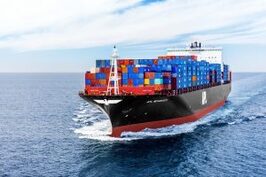 Africa’s Centre of Excellence for Shipping and Maritime Matters.
Africa’s Centre of Excellence for Shipping and Maritime Matters.
Mission Statement
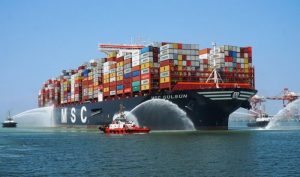 To Promote and Advocate for Efficient and Competitive Shipping and Maritime Services in Eastern, Southern and Northern Africa.
To Promote and Advocate for Efficient and Competitive Shipping and Maritime Services in Eastern, Southern and Northern Africa.
MANDATE
MOESNA’ MANDATE IS TO:
1. Promote International Collaboration
- Facilitate cooperation among regional states to address technical and complex maritime issues.
- Leverage international partnerships to enhance maritime safety, security, and environmental protection.
- Develop mechanisms for regular dialogue and information exchange with global maritime organizations.
2. Protect Regional Interests
- Advocate for fair policies and practices in maritime trade to protect regional interests.
- Utilize collective interventions to counter adverse policies by multinational service providers.
- Represent regional concerns in international maritime forums.
3. Address Common Challenges
- Identify and address shared maritime challenges through regional collaborations.
- Build synergies to strengthen the region’s maritime sector.
- Develop strategies to countervail external pressures and influence.
4. Foster Regional Interdependency
- Establish frameworks for the safe and efficient use of shared maritime bodies and facilities.
- Harmonize maritime policies across the region to ensure seamless connectivity.
- Promote joint management and optimization of maritime resources.
5. Pool Resources for Capital-Intensive Projects
- Encourage joint investments in vessel ownership and maritime infrastructure.
- Facilitate funding for regional maritime initiatives and cross-national projects.
- Develop financial mechanisms to support large-scale maritime endeavors.
6. Combat Maritime Threats
- Coordinate regional efforts to address maritime piracy, robbery, and other crimes.
- Develop a unified approach to enhance maritime security.
- Implement joint strategies to mitigate threats and ensure safe trade routes.
7. Conduct Research and Provide Expert Analysis
- Establish an expert institution for maritime research and technical studies.
- Generate industry-based studies and advisories to inform policy and decision-making.
- Stay abreast of changing dynamics in shipping and international trade.
8. Harmonize Commercial Policies
- Align the interests of land-linked and coastal states through policy harmonization.
- Develop joint import and export policies to ensure uniformity in international trade.
- Mitigate financial losses by coordinating efforts with overseas trading partners.
9. Promotion of Common Agendas
- Draw inspiration from the revised African Maritime Transport Charter (AMTC).
- Encourage regional groupings to pursue common goals and promote common agendas.
- Support the development of the regional and African maritime economy.
10. Influence Global Maritime Dimensions
- Advocate for greater regional representation in global maritime policy formulation.
- Develop strategies to influence international logistics and supply chain dimensions.
- Engage in global maritime discussions to represent regional interests effectively.
11. Enhance Maritime Connectivity
- Promote maritime collaboration to achieve better connectivity between African states.
- Review and harmonize cabotage regimes to support regional vessel ownership.
- Support the Africa Continental Free Trade Agreement by enhancing maritime links over rail and road options.
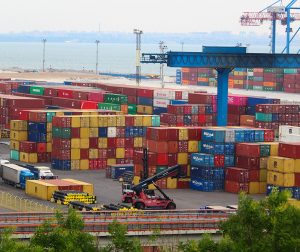
Contact Us
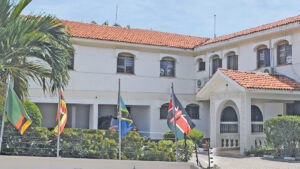
MARITIME ORGANIZATION FOR EASTERN, SOUTHERN, AND NORTHERN AFRICA
MOESNA Secretariat
![]() Palm Drive, Off Links Road, Nyali
Palm Drive, Off Links Road, Nyali
![]() P.O. Box 89112 – 80100
P.O. Box 89112 – 80100
![]() Mombasa, Kenya
Mombasa, Kenya
![]() +254 722 207940/ +254 721 207940
+254 722 207940/ +254 721 207940
![]() [email protected]
[email protected]
![]() www.moesna.org
www.moesna.org







